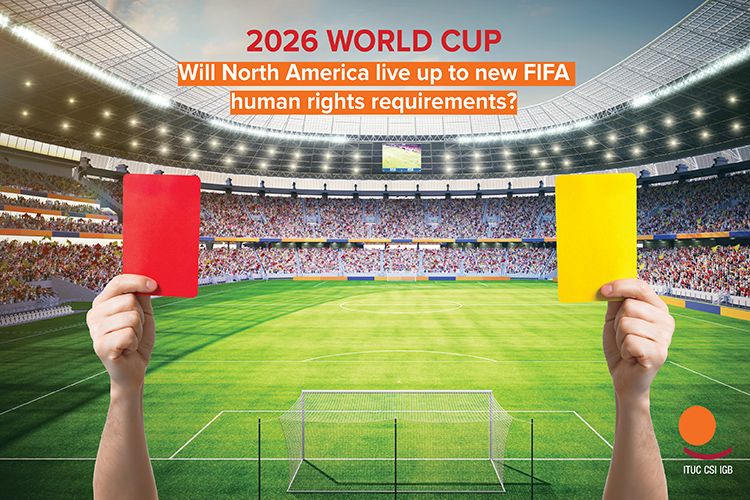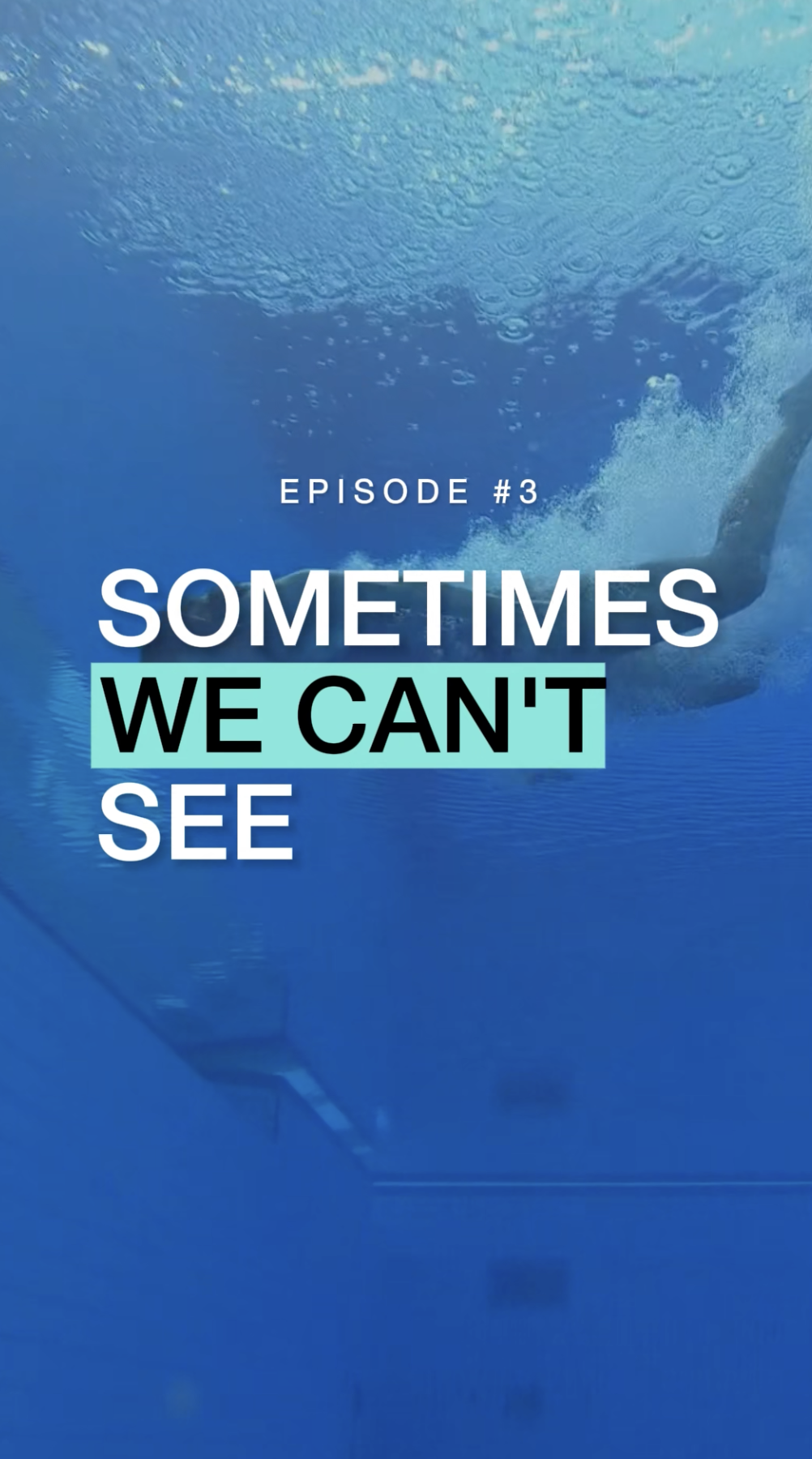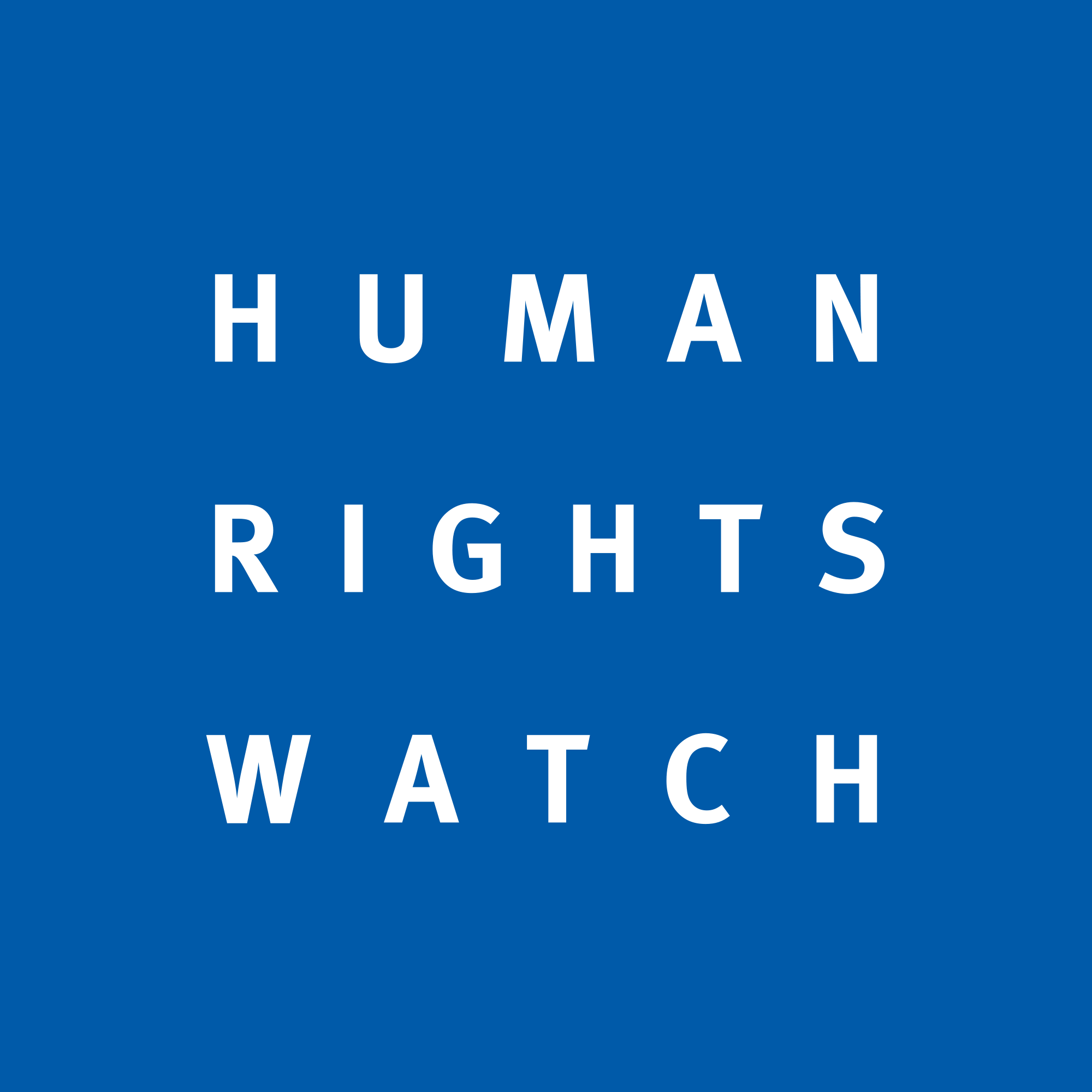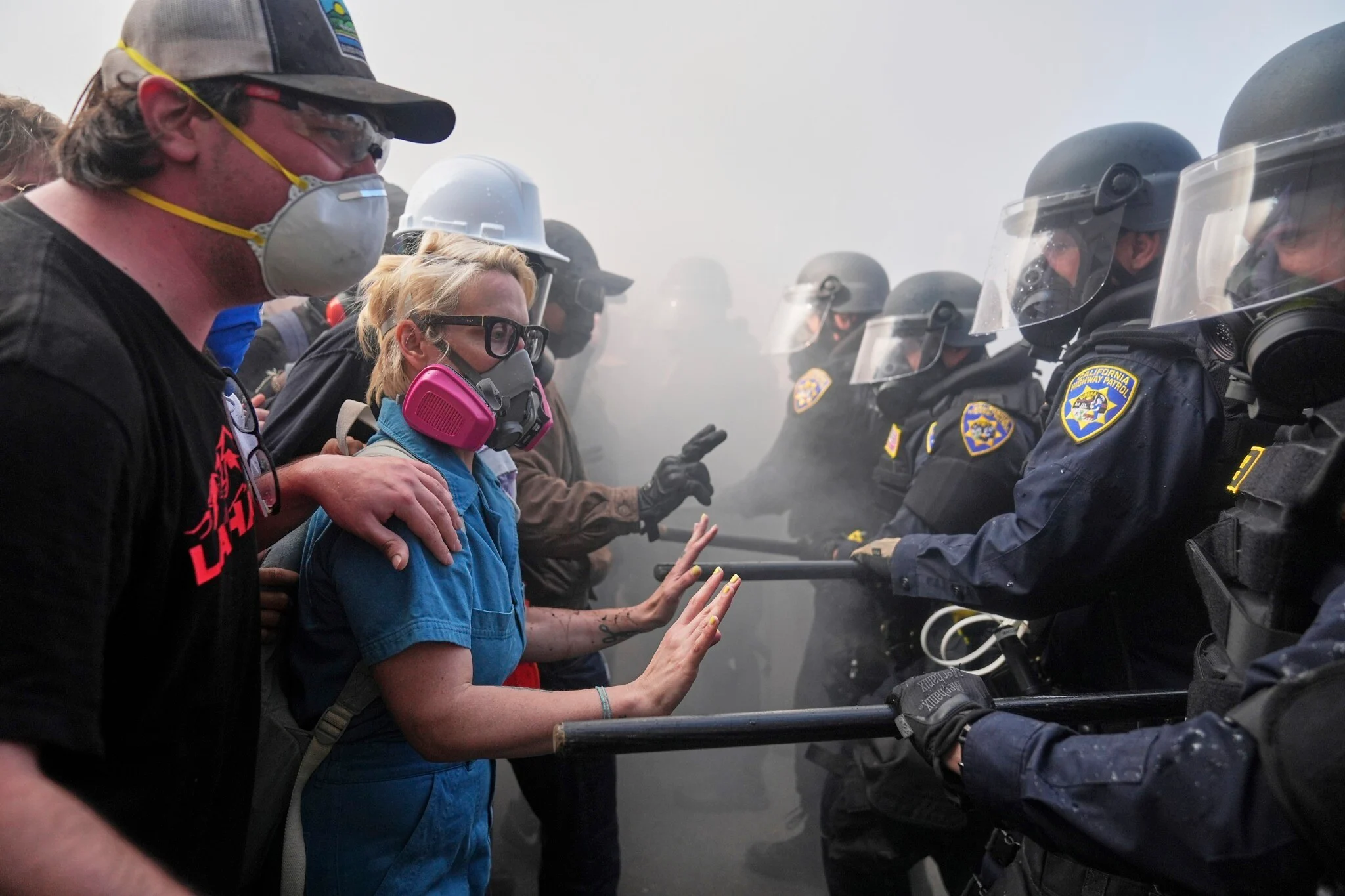FIFA’s award of the 2026 World Cup to the “United” bid of Canada, Mexico and the USA will provide a further test of FIFA’s human rights commitments, with the inclusion of mandatory human rights requirements, including labour standards, in the bidding process.
FIFA delegates meeting in Russia on 13 June chose the United bid ahead of Morocco. The ITUC Global Rights Index 2018 ranks countries based on their protection of worker’s rights and the United bid countries were ranked: 2 for Canada (repeated violations of rights), 4 for United States (systematic violations of rights), and 5 for Mexico (no guarantee of rights). This raises a number of concerns on how the event’s organisers will address workers’ rights violations during the build-up and delivery of the World Cup. The FIFA requirements are not limited to labour standards, and a wide range of other internationally recognised human rights are included, such as freedom of expression, non-discrimination and children’s rights.
“None of the three host countries has a perfect record on workers’ rights, with Mexico and the USA ranking poorly in the ITUC Index. The ITUC will be working with our Global Unions and NGO partners in the Sport and Rights Alliance (SRA), and through the new independent centre for sports and human rights which will be launched at the end of June,” said ITUC General Secretary Sharan Burrow. “With the launch of the new independent centre, and the inclusion of binding and enforceable labour and other human rights standards in mega-sporting events, we now have the way forward to end the exploitation which has cost so many lives and severely tarnished the sports industry.”
While FIFA’s recent commitments show some progress, there is still a way to go. One example is the Iran’s policy forbidding women to attend men’s football matches, in violation of FIFA’s statues and human rights policy.
The head of Tehran’s Azadi Stadium announced that women will be allowed to enter stadiums as part of family units’ to watch broadcasts of Iran’s World Cup matches, but the ban on attending live matches is still in place.
To see the petition on Iran’s ban on female spectator, click here
FIFA’s bidding requirements for the 2026 World Cup include that:
“The member associations must provide specific commitments and information on human rights and labour standards, including:
- An explicit public commitment to respect all internationally recognised human rights in line with the United Nations’ Guiding Principles on Business and Human Rights;
- A proposal for a human rights strategy on how to identify and address the risks of adverse impacts on human rights and labour standards. The strategy must include:
- A comprehensive report identifying and assessing any risks of adverse impacts on human rights and labour standards that is informed by a study by an independent expert institution assessing the respective country’s human rights context;
- Mechanisms that will be put in place to address all of the identified human rights risks;
- A concept outlining ways in which the member associations will provide for or cooperate in access to remedy in the event that adverse human rights impacts have occurred.
- Guarantees of compliance with international human rights and labour standards from the government and host cities, as well as from the entities responsible for the construction and renovation of stadiums, training sites, hotels and airports.”
For more information, please contact the ITUC Press Department on +32 2 224 03 52 or mail to: press@ituc-csi.org






